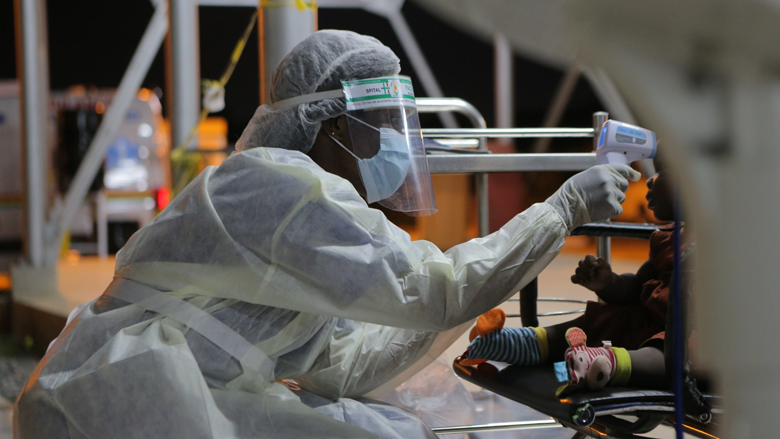For Ghana, COVID-19 is exacerbating poverty and disproportionately impacting the poor and vulnerable. Economic growth has slowed, and the labor market has been hard hit—77 percent of the population reported a decline in household income during the first three months of the pandemic. The crisis is also threatening to disrupt the provision of essential health services due to barriers in the supply of, and demand for, services.
In order to contain the virus, guard against risks such as increased maternal and child mortality, and safely reopen socioeconomic activities and schools, the IDA-supported Ghana COVID-19 Emergency Preparedness and Response Project was approved. The project uses a cross-sectoral approach, convening line ministries, technical agencies, and other World Bank projects in education, social protection and jobs, water and sanitation, and digital development.
To establish trust and rapidly disperse information about the pandemic, the project supported extensive, nationwide awareness campaigns delivered in sign language, local languages, and even Braille. Call Centers and COVID-19 Information Centers were established in all 16 regions of the country. And communication caravans were deployed to disseminate information about preventive measures and where to seek care.
To contain the virus and expand the capacity of the laboratory system, streamlined digital solutions for timely case detection, diagnosis, and reporting were introduced. As a result, the number of national laboratories increased from two to 16 in less than a year and a total of 925,611 tests have been performed.
In Accra, the epicenter of the country’s COVID-19 outbreak, contact tracing capacity was strengthened by training 1,340 surveillance officers during the first three months of the project. In addition, 21 treatment centers and 129 Intensive Care Unit beds were established to handle cases. The project also provided psychosocial support, wheelchairs, and protective gear to over 20,000 persons with disabilities.
These interventions allowed for the continuity of essential health and nutrition service delivery, despite the ongoing public health crises. With the introduction of infection prevention and control measures, socioeconomic activities, health facilities, and schools were able to reopen safely.
Now, with the continued support of IDA, the government can focus on the deployment of COVID-19 vaccines nationwide, the establishment of a national Center for Disease Control, and promote equal access to routine primary health care services to improve the health of all citizens.

